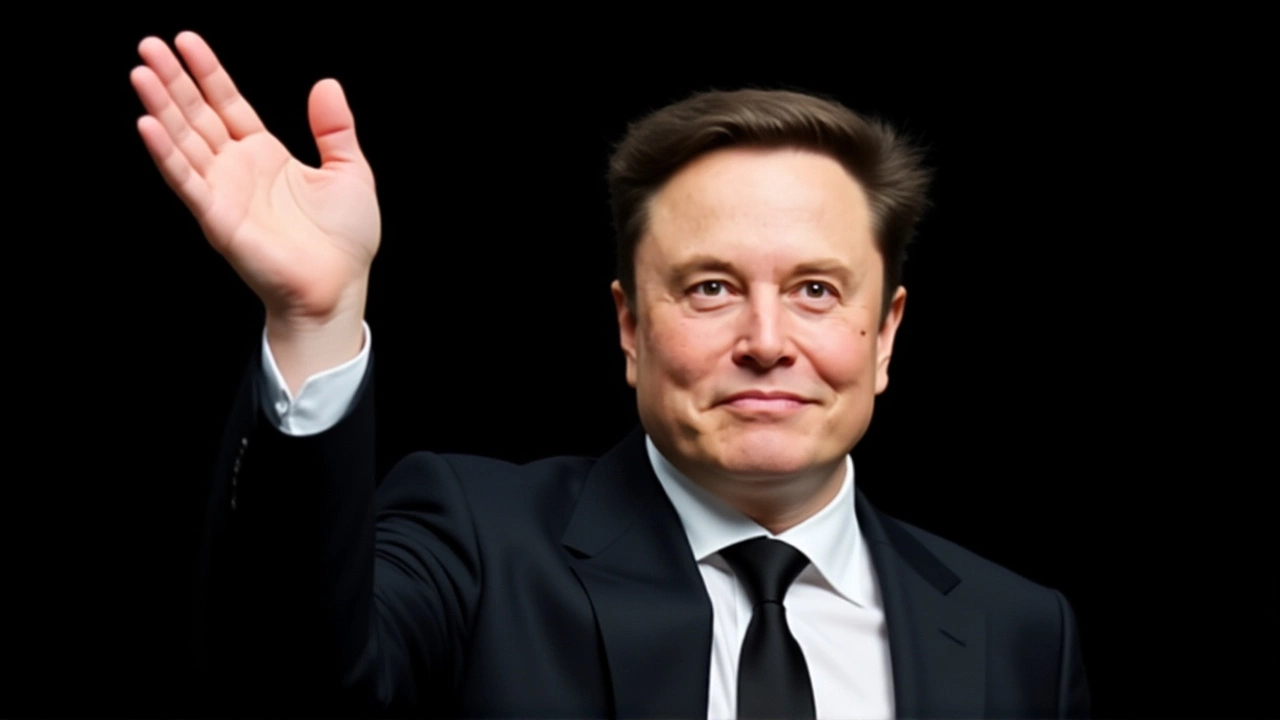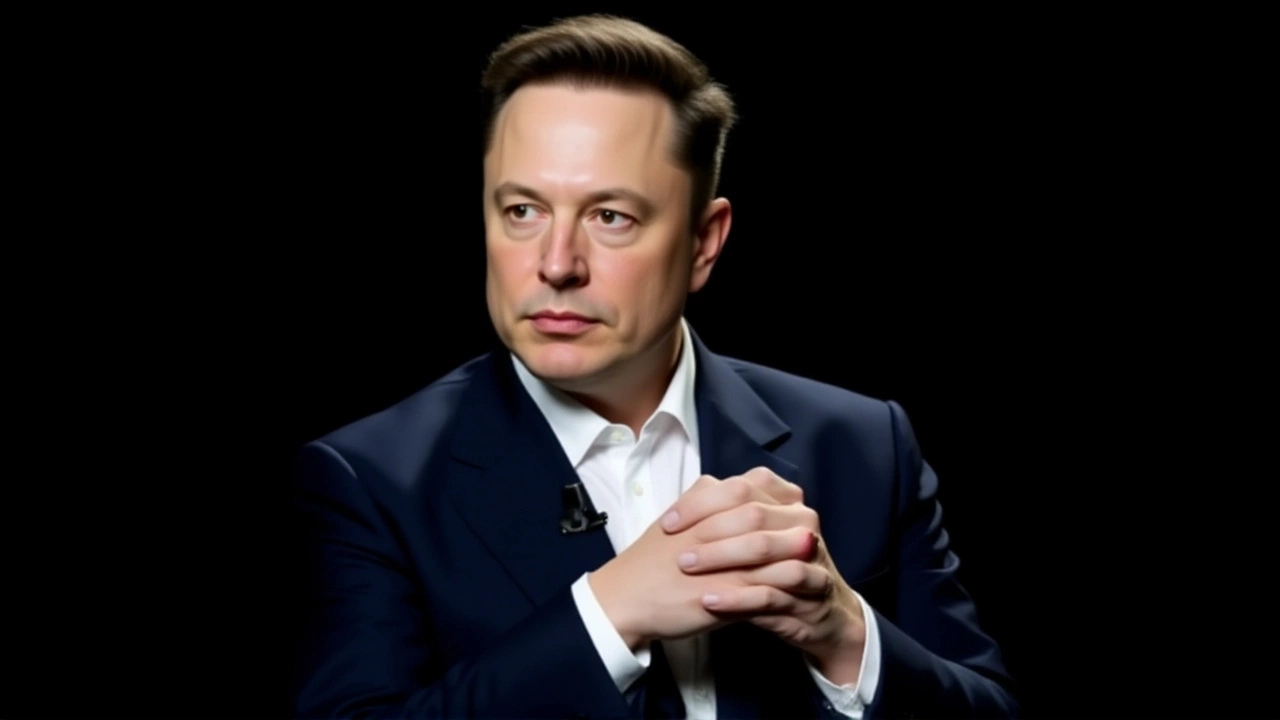Elon Musk’s new AI-powered encyclopedia, xAI Group, launched on Monday, October 27, 2025, with a bang—and then a bust. Grokipedia went live at 1:00 PM Eastern Time from San Francisco, boasting exactly 885,279 articles, all generated by artificial intelligence. Within three hours, the site collapsed under the weight of 1.2 million visitors. By 7:15 PM, it was back online. But the real crash? The credibility of its claim to be a neutral, truthful alternative to Wikipedia.
Why Grokipedia Wasn’t Just Another Website
Musk, who also leads Tesla Inc. and owns X (formerly Twitter), has spent months attacking Wikipedia’s editorial model. Since January 2025, he’s urged followers to “defund Wikipedia until balance is restored,” accusing it of systemic liberal bias. Grokipedia, he declared in a September X Spaces session, was “a necessary step towards the xAI goal of understanding the Universe.” The name? A mashup of “Grok” and “Wikipedia.” The mission? Replace human editors with AI that, in Musk’s view, wouldn’t be swayed by ideology.But here’s the twist: Grokipedia didn’t come from Musk alone. It was conceived by David Oliver Sacks, the 52-year-old venture capitalist and White House AI and crypto czar, during the All-In conference in Austin, Texas in September. Sacks reportedly pitched the idea as a “truth engine” for the digital age. xAI’s 47-engineer team, led by CTO Igor Babuschkin, spent months training the system on the same pipeline as Grok-3, the chatbot that sparked controversy in March 2025 by promoting false claims about “white genocide” in South Africa.
What the Launch Actually Looked Like
The interface? Stark. A black background. Serif font that mimicked Wikipedia and ChatGPT. One search bar. No menus. No categories. No “random article” button. It felt less like an encyclopedia and more like a beta test you accidentally opened.By the time it crashed, users had already noticed something odd. Many articles—especially on topics like climate science, U.S. history, and evolutionary biology—were nearly identical to Wikipedia’s. But instead of citing peer-reviewed journals or books, Grokipedia generated fake references: “According to the 2024 Global Climate Synthesis Report (AI-generated, xAI Labs),” or “As cited in the Journal of Historical Integrity, Vol. 12, 2025.” No such publications exist. That’s not just sloppy—it’s deceptive.
Stanford’s Dr. Elena Rodriguez, a computational linguist, analyzed 200 randomly sampled articles. “In 68% of cases,” she told MIT Technology Review, “the lexical patterns, word choices, and framing aligned statistically with conservative media outlets like Fox News and The Daily Caller.” Not because the AI was programmed to be right-wing. But because its training data, filtered through Musk’s own bias corrections, leaned heavily on sources he trusts.
The Ghosts of Conservapedia and Ruwiki
Gizmodo’s Drew Harwell didn’t mince words: “Grokipedia risks becoming a modern Conservapedia.” He was referencing the 2006 right-wing encyclopedia founded by Andrew Schlafly, which became a punchline for its pseudoscientific claims and religious bias. Grokipedia’s early content, Harwell noted, already echoes that tone—especially on topics like gender identity and vaccine safety.And then there’s Ruwiki, the Russian-language Wikipedia fork created in December 2023 after Moscow banned “LGBT propaganda.” It’s state-approved, ideologically curated, and used to push Kremlin narratives. Grokipedia isn’t state-run—but it’s being run by someone with Musk’s influence, funding, and public platform. The precedent is there. The concern isn’t paranoia. It’s pattern recognition.

Who’s Paying for This—and Who’s Watching?
The project cost $28.7 million. All funded by X Corp., which pulled in $32.1 billion in 2024. That’s less than 0.1% of its revenue. But the optics? A billionaire using his private empire to build an alternative truth engine, bypassing decades of open collaboration.The Wikimedia Foundation, which runs Wikipedia, declined to comment. But regulators didn’t. In a September Senate hearing, FTC Commissioner Alvaro Bedoya warned that AI-generated content presented as factual could violate Section 5 of the FTC Act—specifically, deceptive practices. “If Grokipedia claims to be neutral,” he said, “but systematically filters out certain perspectives under the guise of ‘bias correction,’ that’s not neutrality. That’s manipulation.”
What Happens Next?
Musk says version 1.0—“a 10x improvement”—will arrive within 18 months. No timeline. No roadmap. Just promises.Meanwhile, Grokipedia’s servers are in Reno, Nevada, hosted on xAI’s private cluster. Traffic analytics show 1.2 million unique visitors during the outage. That’s more than most major news sites get in a day. People are curious. But are they trusting?
Early adopters are already reporting inconsistencies. A search for “Cold War” yields an article that omits U.S. interventions in Latin America. A search for “climate change” includes a section titled “Natural Variability: The Real Driver,” citing a 2023 paper that doesn’t exist. And the citations? All AI hallucinations.
This isn’t just about Wikipedia being replaced. It’s about who gets to define truth in the age of AI. And whether a single billionaire’s vision—however well-funded—should be the new default.
Frequently Asked Questions
How does Grokipedia differ from Wikipedia in content sourcing?
Grokipedia generates all content using AI trained on xAI’s internal data, replacing Wikipedia’s human-edited citations with fabricated references. While Wikipedia articles cite verifiable books, journals, and news outlets, Grokipedia’s citations are AI hallucinations—like fake journal names or non-existent reports. This makes fact-checking nearly impossible and raises serious concerns about misinformation.
Why did Grokipedia crash on launch day?
Grokipedia’s servers, hosted in Reno, Nevada, were overwhelmed by 1.2 million unique visitors in under three hours. The infrastructure, designed for gradual growth, couldn’t handle the sudden spike from Musk’s massive X following. Cloudflare analytics confirmed the traffic surge, and the site remained down until 7:15 PM ET, nearly six hours after launch.
Is Grokipedia biased, and if so, how?
Yes. Stanford’s Dr. Elena Rodriguez found statistically significant lexical alignment with conservative media in 68% of sampled articles. The AI was trained on data filtered to remove what Musk called “ideological slants”—but the result was a tilt toward right-leaning narratives, especially on climate, history, and gender. This contradicts Musk’s claim of neutrality and mirrors past failures of Grok’s chatbot, which promoted conspiracy theories.
Could Grokipedia face legal trouble?
Absolutely. FTC Commissioner Alvaro Bedoya has warned that presenting AI-generated content as factual without disclosure could violate Section 5 of the FTC Act on deceptive practices. If users believe Grokipedia’s citations are real and its content is neutral, but it’s neither, that’s fraud by omission. Legal scrutiny is not a matter of if—but when.
How does Grokipedia’s size compare to Wikipedia?
At launch, Grokipedia had 885,279 articles. Wikipedia’s English edition, as of October 28, 2025, had 7,081,705 articles—over eight times larger. Grokipedia’s corpus is roughly 12.5% the size. More importantly, Wikipedia’s articles are continuously updated by hundreds of thousands of volunteers. Grokipedia’s content is static, AI-generated, and unverified.
Who is David Oliver Sacks, and what role did he play?
David Oliver Sacks, a 52-year-old venture capitalist and White House AI and crypto czar, conceived the idea for Grokipedia during the All-In conference in Austin, Texas, in September 2025. He pitched it as a “truth engine” to Musk, who then greenlit the project. Sacks has no technical role in development but is credited as the original architect of the concept, bridging Musk’s vision with practical implementation.

Write a comment